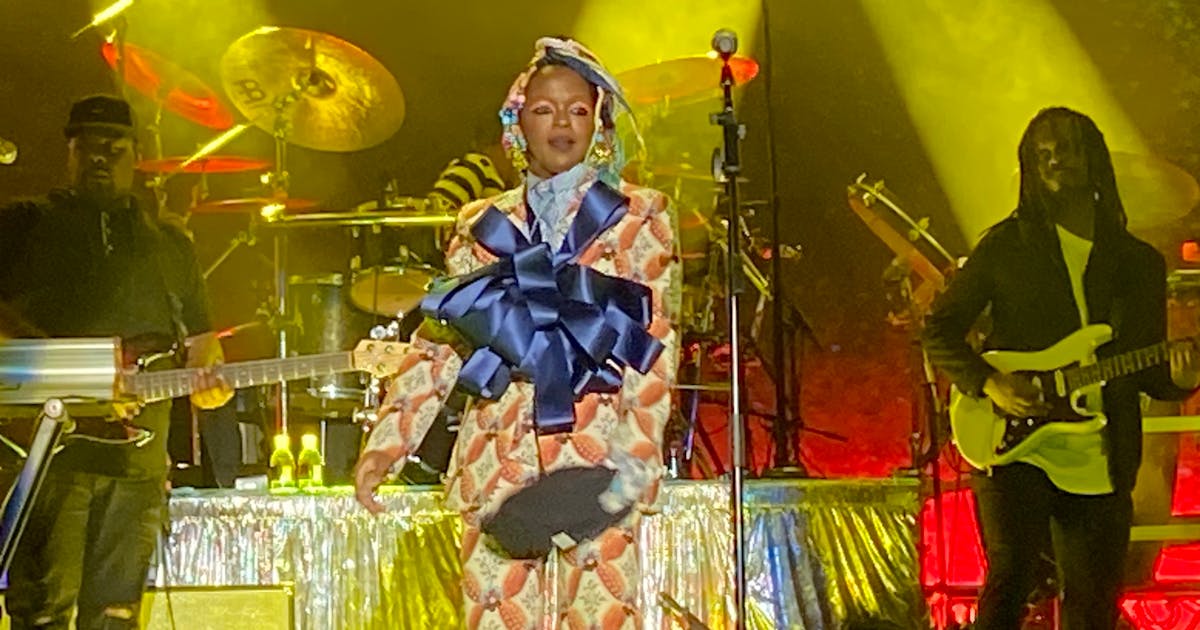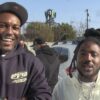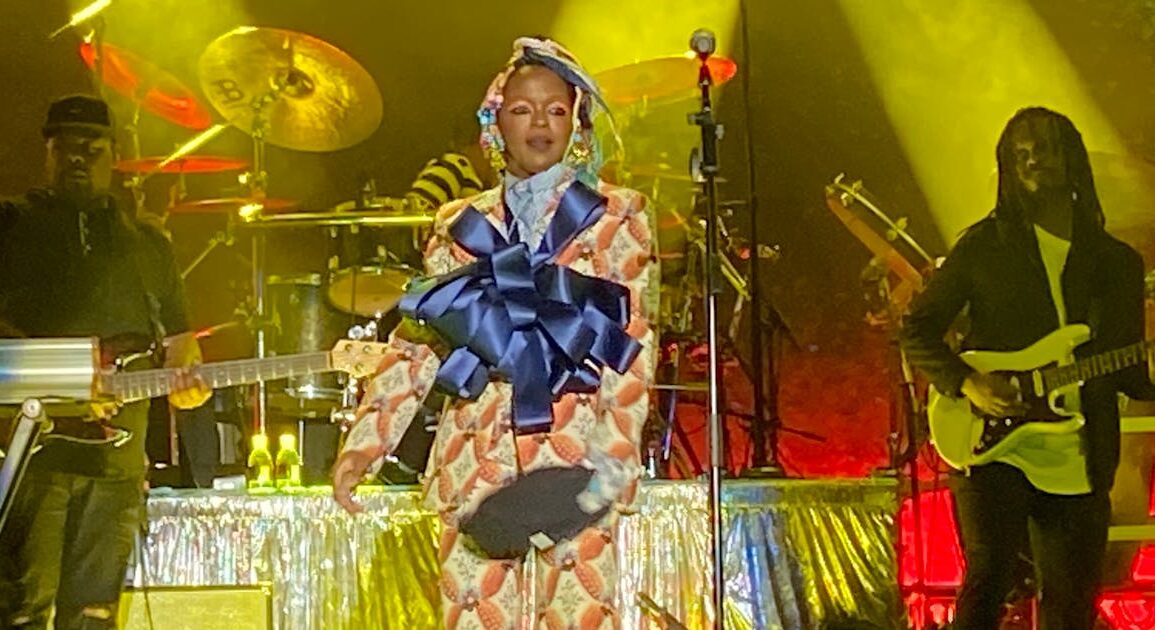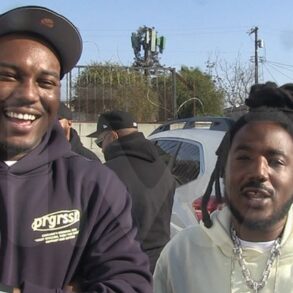
The waiting is not the hardest part with Lauryn Hill. It’s a way of life with the spellbinding but reclusive songstress.
Fans have been waiting 25 years (and counting) for the follow-up to her masterpiece debut, 1998’s Grammy-grabbing “The Miseducation of Lauryn Hill.” On Friday night, fans waited for one hour and 55 minutes for her to hit the stage at Mystic Lake Casino Amphitheater, where she was celebrating the silver anniversary of her landmark disc.
The word is that Hill takes the stage not when she’s scheduled but when she’s feeling right, when her spirit is right, when her all biorhythms are right. Her 8 p.m. concert meant that DJ Reborn introduced herself as the opening act at 9:08 and treated nearly 7,000 patient, pot-smoking people to 40 minutes of hip-hop party music.
Then it was star time. Well, actually, there were a couple of false starts where the band was ready but the singer was not. Finally, Hill arrived, wrapped in a giant navy bow around her bright diamond-patterned suit, a pile of colorful braids and beads atop her head and glowing pink eyeshadow. “Now everything is everything,” she sang to open the program. “What is meant to be, will be. After winter, must come spring. Change, it comes eventually.”
“Everything Is Everything,” a track from “Miseducation,” is, like much of that album, political and personal, part soul song, part hip-hop jam.
“Now hear this mixture, where hip hop meets scripture,” she barked at the end of a long rap in “Everything Is Everything.” “Develop a negative into a positive picture.”
Over the course of a too-fast moving 85 minutes, Hill, 48, proved that she is arguably the fiercest female rapper on the planet. Fast, aggressive, spitting bars like she meant it, r’s rolling off her tongue. She’s also a distinctively soulful singer, though her voice sounded a bit strained at times on Friday.
This may not have been Hill’s best Twin Cities performance — her 2016 First Avenue concert was longer and more satisfying — but there were enough transcendent moments to fortify her legend as a towering figure in the neo-soul pantheon.
One trait that supported her legend was her assertiveness as a bandleader. Fronting a too-large-for-the-stage ensemble that included five keyboard players, five horn blowers (including tuba), a string section (with conductor), three backup singers and two hypemen, she often signaled anxiously to musicians or crew members both during and between songs. Was she unhappy with a particular performance/tempo or just her in-ear monitors?
In the middle of “Killing Me Softly,” (the Roberta Flack hit that Hill’s group the Fugees covered in 1996), she called a halt and turned to the musicians with some instructions. Then they restarted where she’d left off. The interruption said more about her striving for the right vibe than for scripted precision.
Mining a fuller, richer and often more bottom-heavy sound, Hill performed several numbers from “Miseducation,” including “Doo Wop (That Thing),” “To Zion” and her rendition of Frankie Valli’s “Can’t Take My Eyes Off You” (she’s a Jersey girl, after all). She trotted out one of her sons, Joshua, aka YG Marley, to sing “Marching to Freedom.” And she slipped in “Fu-Gee-La,” a sprightly tune from the Fugees as the pre-encore and the night’s highlight.
Hill seemed to conclude the show after an impassioned reprise of the chorus of “Fu-Gee-La.” But the crowd coaxed her for an encore, Bob Marley’s “Turn Your Lights Down Low,” which was the perfect mix of a Marley reggae groove and Hill’s buoyant spirit. At her insistence, Fugees bassist and producer Jerry Wonda, who apparently lives near the Twin Cities, joined her onstage for a bow.
Hill will reunite with the Fugees for 11 much-anticipated shows starting Oct. 17, their first tour in 25 years. Talk about waiting.
This post was originally published on this site be sure to check out more of their content.









